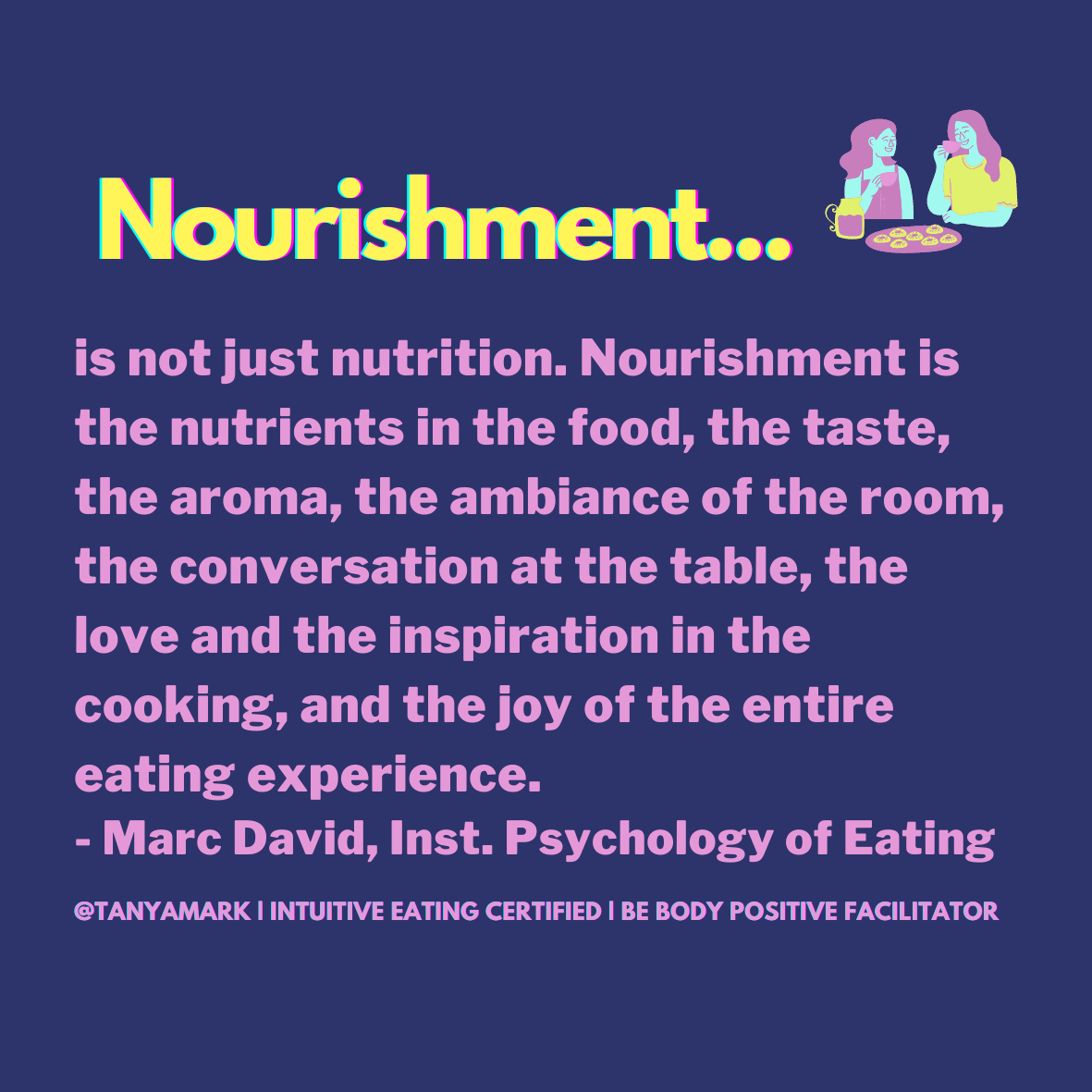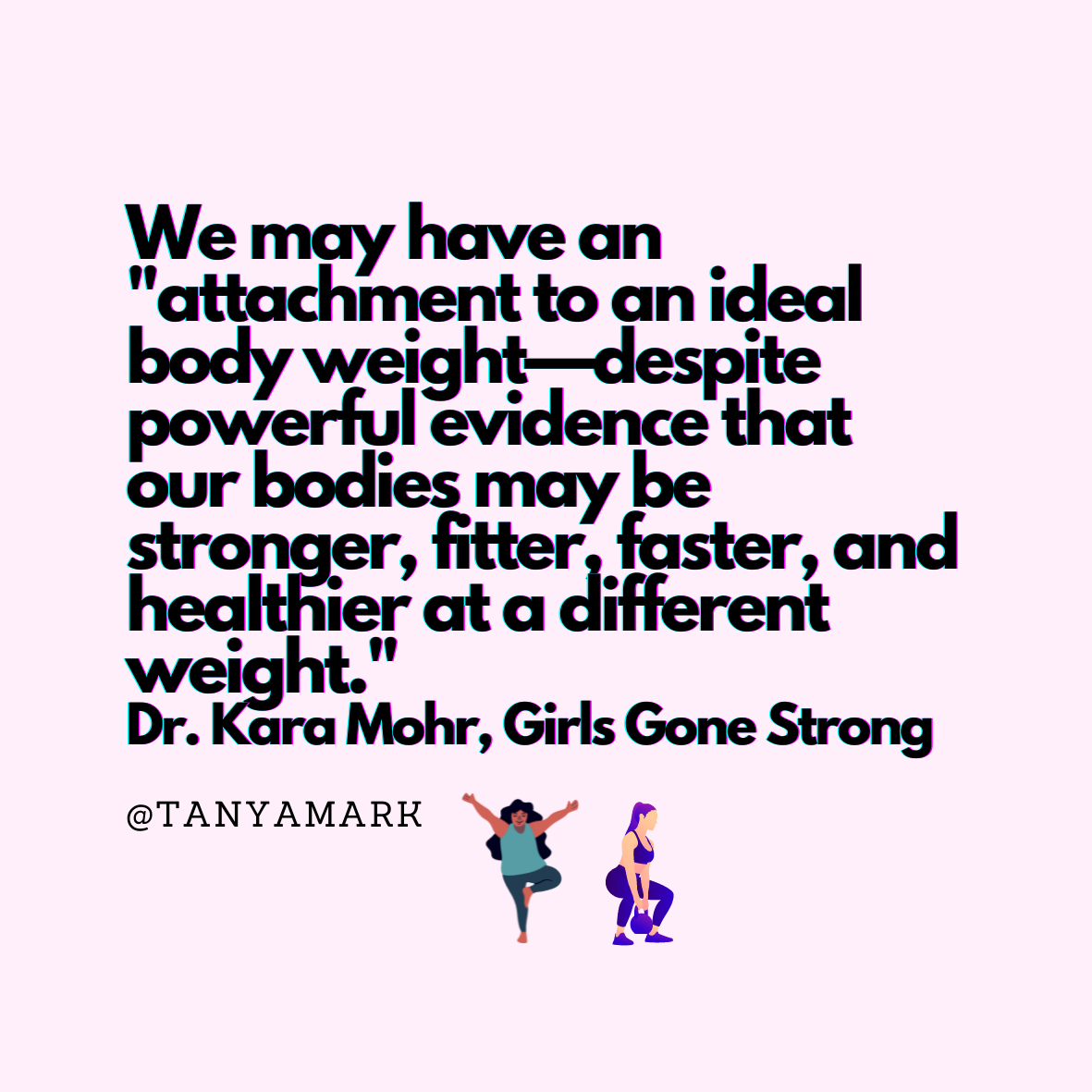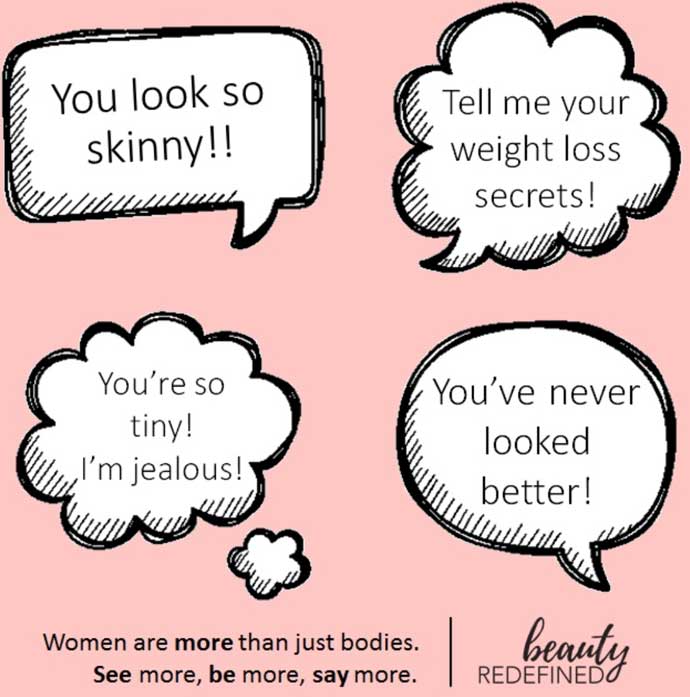What’s your ideal weight? I have no idea!!! because “ideal” weight is a myth.
But, I can hear you now, “but I DO have an ideal weight. When I used to weigh _____ (fill in your number, when I was 22, last year, before the baby, according to BMI calculations, etc.), that’s when I felt my best” – says most of us.
So let’s talk about some truths when it comes to weight and health before we get into the 8 tips to ditch this myth through Intuitive Eating, a self-care eating framework.
First things first, the scale can make us crazy.
It can shift our mindset in an instant.
One moment you’re having a great day, the next you’re not…just because of a number on the scale. Let’s take our power back!
Scale fluctuations are normal
So no, you didn’t really gain/lose X pounds of actual body weight in one day.
“It [is] physiologically impossible to gain or lose three to five pounds of fat overnight, no matter what the scale says,” says Kelly Hogan, MS, RD, CDN
BMI is not an accurate measure of your health.
”…in the 1990’s a bunch of Americans went to bed and woke up “overweight.” Their body size hadn’t changed-however against recommendations from The World Health Organization (which was funded by the makers of a weight-loss drug) decided to lower the BMI. The reality is that BMI really tells you nothing about someone’s health or behaviors.” – Jennifer Rollin, Eating Disorder Therapist
So instead of focusing on weight or BMI, shift to practicing these healthy behaviors instead:
8 tips to ditch the myth of “ideal weight” with Intuitive Eating
#1 Learn to honor your hunger and fullness, for the most part (as there’s no such thing as perfect eating)!
#2. Acknowledge that we are all emotional eaters. So no, emotional eating isn’t “bad.” Instead, notice if it’s your only or main coping strategy and together, we’ll explore some new ones.
#3. Slow down and eat in a relaxed and conscious manner – again, for the most part. Create a pleasurable experience around meal times.
Prioritize meal time as a nourishing experience for optimal digestion.

#4. Be in touch with your body’s internal cues and be aware of which foods energize you versus deplete you. Take the time to explore. Everybody’s digestion is unique.
#5. Move your body in whatever way works for you and because it brings you joy not because you “should.” Fitness looks different on every body!

#6. Honor the importance of basic nutritional knowledge. Learn how to eat to balance your blood sugar (which stabilizes mood, cravings and energy), strengthen your digestion and more. Ditch the diet mentality and practice gentle nutrition.
#7. Honor your genetics. Body diversity is part of the human experience. We’re not all meant to look a certain way and health doesn’t come in a certain body size, shape or weight. And, our bodies are meant to change throughout our lives.
#8. Prioritize stress management and be aware of “who you are bringing to the plate.” Are you constantly worried about food, your body? Stress impacts how your body digests foods and poor digestion is often unfairly blamed on the food itself!
So let’s review.
What’s your “ideal” body size?
There’s no such thing as “ideal.”
So no, it’s not necessarily what you weighed when you were 22, 2 years ago, 2 months ago, pre-baby, or when you dieted, obsessed over and restricted your food and over-exercised to achieve it.
“Ideal weight” is a myth.
Want to learn to take care of your deep health and ditch the myth of an “ideal” number on the scale?
Let’s explore your health through deep health coaching and allow your body weight to be where it’s healthiest, not where diet culture says it “should” be.
- Tanya





